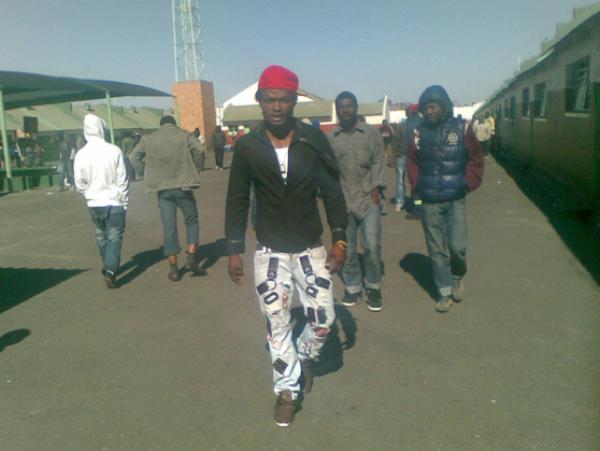African immigrants experience a spate of raids and deportations

It started on 16 July in Langebaan at Freeport block of flats. Immigrants were deported with nothing on them. Deportees, leaving friends and relatives behind, lost their possessions, furniture and money. Then on 31 July, the Department of Home Affairs (DHA) raided a block of flats in Somerset West and Sholoza Villa in Kraaifontein. Immigrants who did not have documents — mainly Congolese, Tanzanians, Malawians and Zimbabweans — were arrested.
Sergeant Lindile Dubeni of Corporate Communication SAPS Western Cape Media Centre confirmed to GroundUp that SAPS and DHA have an ongoing joint operation. Police search for any illegal activity while Home Affairs looks for undocumented immigrants. The raids take place in the early hours, between 2 and 3am. In an email, Dubeni justified this by writing “it is a perfect time to get people”.
An official from Aresta (The Agency for Refugee Education, Skills Training & Advocacy) said 90 people were arrested in Kraaifontein. Their organisation helped 11 people to be released; 39 were taken to Pollsmoor on 23 July and later transferred to Lindela. What happened to the remainder is uncertain. Pollsmoor Prison confirmed that 16 men of various nationalities and four women are being held.
DHA has also been arresting foreigners without documents in the streets and at train stations.
GroundUp interviewed a 35-year-old Zimbabwean man who was detained at Pollsmoor prison on 16 July. He has a medical problem that requires him to use a catheter. He said he never received any medical attention while in Pollsmoor. He was transferred to Lindela Repatriation Centre on 31 July, awaiting deportation.
Munoda (not his real name) told GroundUp on the telephone: “I am scared I will die in prison. My urinary bag is now full and uncomfortable. I might get an infection. My family have been working on paying for my deportation, but I was transferred to Lindela before they had finished the process … they are still willing to pay for my deportation.”
He is worried about his belongings. He also doesn’t know what he will do once he is dropped on the Zimbabwean side of the border as he has no bus fare to get home in Harare, nearly 600km away.
Munoda, his young brother, wife and his child were all undocumented. His brother is also currently detained in Lindela.
Munoda was deported on 5 August because of his poor health. His wife and child were deported to Beitbridge, Zimbabwe, on 29 July. They phoned one of their relatives to fetch his wife and the baby as they did not have the money to travel to Harare.
Another man arrested in Langebaan who did not wish to be named, says his sister and sister in law, a pregnant woman, two children, and an 11-month-old baby were detained for a week at Cape Town Police station. They were not given food and were not allowed visitors. The baby could not be breast fed as children were separated from their mothers.
The three women and their children were deported to Beitbridge on 22 July. Their families in Harare had to send someone with bus fare.
In a general email, Fatima Khan, the Director of the Refugee Rights Unit at UCT, wrote, ‘arrests of a number of undocumented asylum seekers and asylum seekers with expired permits have recently taken place in various areas in Cape Town’.
Khan also wrote that in addition to these mass arrests, there have been arrests of individuals. A very sick Zimbabwean national with a colostomy bag was taken to Lindela where he was not receiving medical treatment. An attorney from Lawyers for Human Rights has been alerted.
Aleck Kuhudzai, a former candidate attorney who practised criminal law and does work for Aresta, said,”We applaud and condone the joint efforts of the SAPS and the DHA immigration unit to rid the country of undocumented and illegal foreigners. Whilst it is clearly understood and respected that the doors of the Republic are open to those who enter the country legally, it is our concern that the manner in which some of the raids have been conducted has left a lot to be desired.
“For example, one cannot expect, in an open and democratic society, to be woken up at 2am in the morning by immigration officials We therefore plead with these units to be mindful of the rights to both liberty and privacy of the documented all those who are in the Republic. The raids can continue to be carried out, but in a manner that promotes the spirit and purport of the human rights as enshrined in the bill of rights”.
Support independent journalism
Donate using Payfast


This article is licensed under a Creative Commons Attribution-NoDerivatives 4.0 International License.
